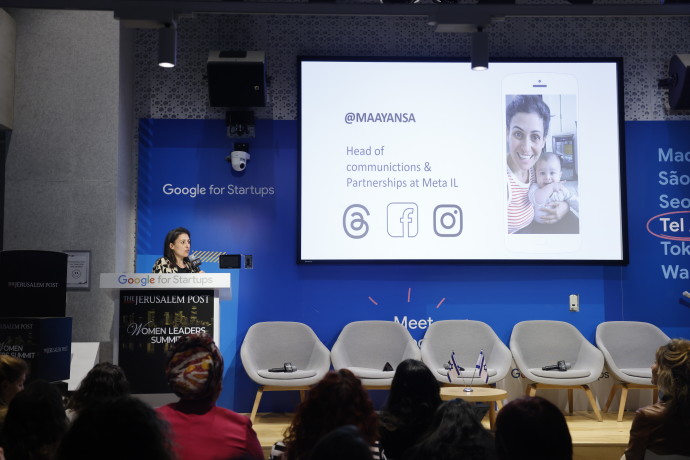Throughout her illustrious professional career in Israel’s technology sector, Maayan Sarig, Head of Communications & Partnerships at Meta Israel has acquired a wealth of knowledge and experience. However, her most recent insight into success came from a more personal experience: becoming a mother.
Speaking to a packed room at the Jerusalem Post’s Women Leaders Summit on March 27, Sarig began by sharing that, “like every other mom, I realized we need a new way to manage everything – to manage our workload, to manage our teams, to manage time and our home.”
This challenge, shared by many professional women, highlights the integration of work-life balance and a message that transcends the workplace.

While many would assume that they can better themselves by improving their weaknesses, Sarig asserted that success is achieved by investing in one's strengths.
“Nobody has won a Nobel Prize or the Olympics because he focused on something he was weak at. At best, if you focus on your weaknesses, you won’t come in last, but I’m talking about how we can win,” Sarig said.
Highlighting the correlation between performance and passion, Sarig theorized that the peak performance zone is achieved by identifying something you are really good at and love doing. She continued to explain that most people have around five core strengths, and by investing heavily in those, one can achieve true success.
Drawing on a research study identifying the aptitude of speed reading among high school students, Sarig demonstrated how the average group in the study improved their speed reading by 66%, while the above average group saw a 828% increase over the course of one month, given the same tools, lessons and training.
“If you are working on something that you are not so good at, you will manage to improve yourself,” Sarig said, adding a bit of a humorous anecdote about how she is trying to learn to cook so her son will eat her food, although admitted that it was nowhere near the level to get onto MasterChef.
“If I’ll focus on the things I’m really good at, I’ll be able to improve myself by over 800%. This [statistic] is where Beyonce is, this is Oprah, Noa Kirel and Ada Yonat. Those are the people that are focused on their strength and winning.”
Rethinking Self-Improvement: Emphasizing Strengths
Flipping the conventional theory of self-improvement, Sarig affirmed that the question is not how to fix what is broken, but to see what is working and how to do more of it.
Bringing in her own professional experiences, Sarig concluded by sharing a photo she uses for every team-building seminar: of a man sending an email on his phone as a rare whale passes by his yacht. While the man may be an efficient worker, she proposed that maybe we are not optimized for efficiency at the expense of creativity, collaboration, and other unique strengths.
Sharing a message of empowerment, she said just “pick up your head, look around, and remember that it’s the abilities, not the disabilities, that count.”